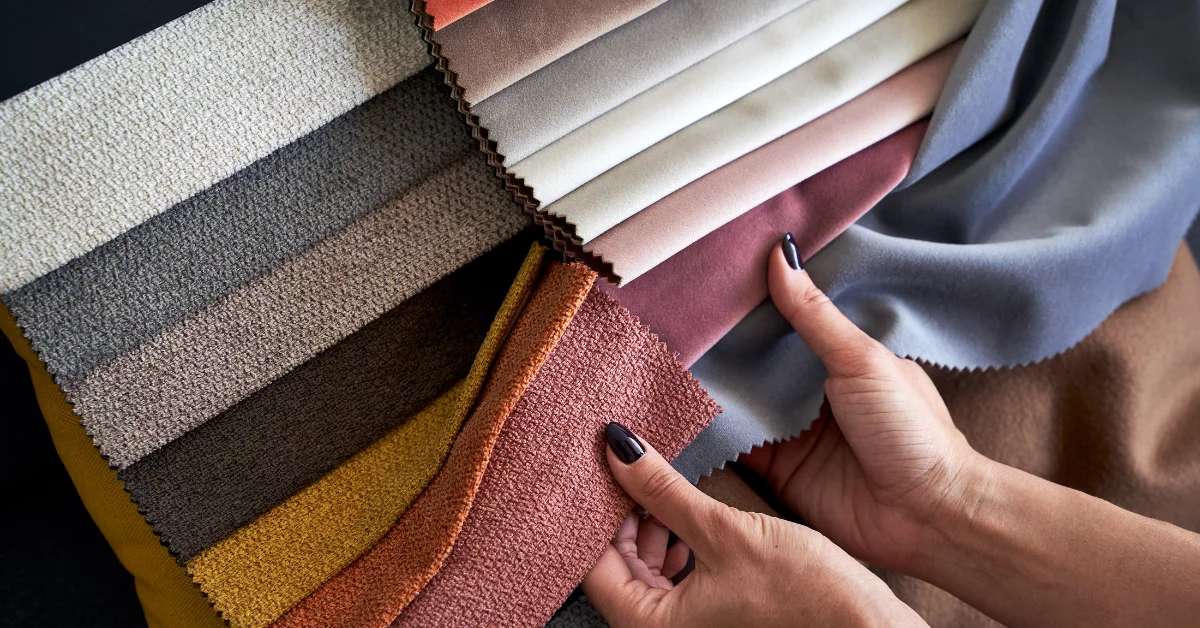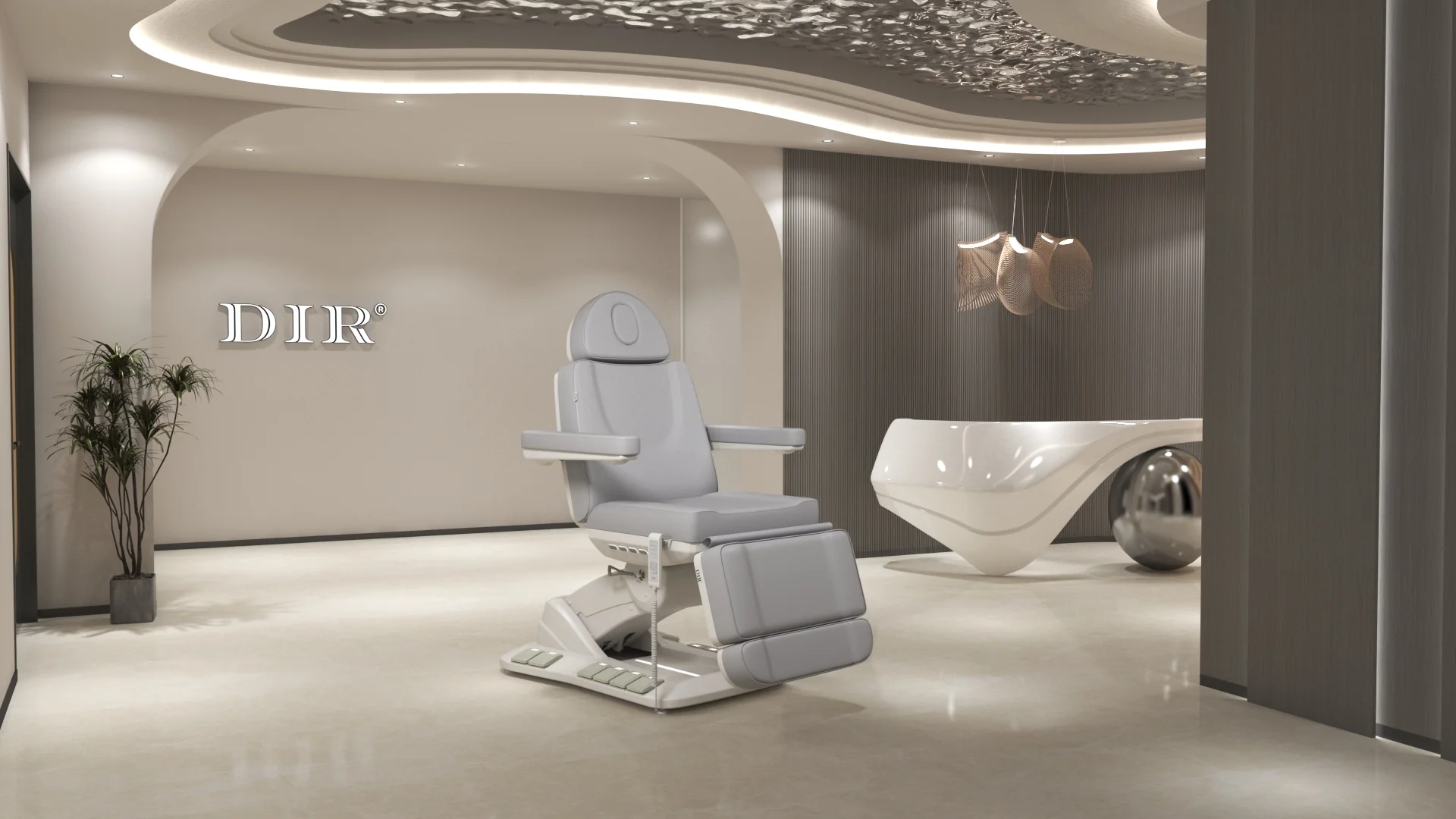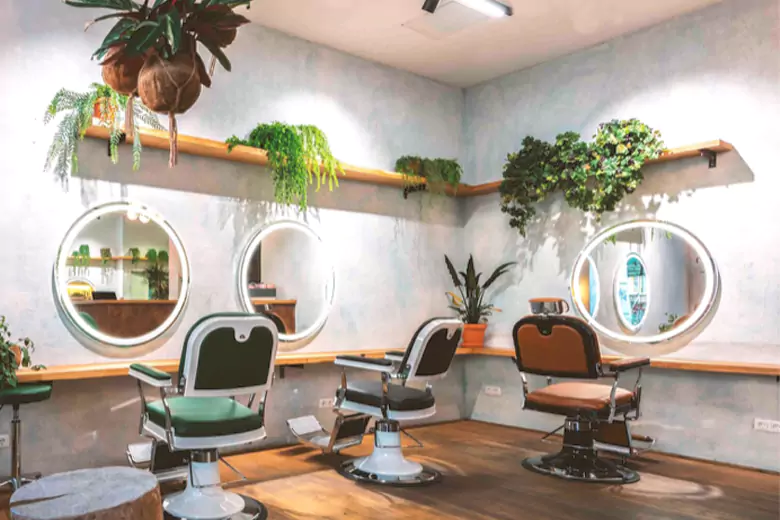Upholstery fabric should be able to withstand the amount of wear and tear that your furniture receives. For example, less-used sofas, chairs, and ottomans in sleeping accommodations or other formal areas can handle a more delicate fabric. On the other hand, pieces that are subjected to heavy daily adhere, consisting as the family room sofa, need to be permitted in tough, durable, completely woven fabrics to prevent stains and damage. To get the best furniture for your living room then try searching for living room furniture sets to get them matching and blending in your room.
Varieties Of Upholstery Cloth
The fabrics that are most suitable for use in making upholstery depend on the following factors; the style of the furniture, the comfort, durability and ease of cleaning. Here are a few upholstery textiles that are frequently suggested:
- Cotton: That is why fabric from cotton is widely used in the production of upholstery, – this material is highly resistant, it lets the air through, and it can be easily tailored. This product makes it easy to complement most interior design themes since it is made in countless colours, fabrics, and designs.
- Linen: Linen fabric gives the clothes a classical look and elegant. Its natural characteristics, porous circumstance, and sturdiness are the widely known points on the issue. Offices and many other both classical and modern interiors would not look out of place with linen upholstery adding its subtle touch of luxury to the picture.
- Velvet: This luxurious material adds a touch of luxury to furnishing. It is cosy and welcoming because its feel is soft and it is smooth.
The Kinds Of Artificial Cloth Utilized In Filling Upholstery
Chemical processing is applied when developing the precursors which are employed in the production of synthetic textiles. In general, they are cheaper and more wear-resistant than upholstery fabrics of natural fibres.
- Acetate: This fabric was originally produced to mimic silk’s appearance and it will not mildew, pill or shrink either. However, it has a fairly moderate level of soil resistance and fades, wrinkles and wear as soon as it is exposed to the scorching sun. It is not a wise option, especially for the furniture that is frequently to be used.
- Acrylic: This artificial fibre was created to resemble wool. It is resistant to fading, soiling, wrinkling, and wear. Acrylic of inferior quality may pill disproportionately in places subjected to high levels of wear. Superior acrylics are designed to considerably reduce pilling.
Execution Cloth
Performance textiles are typically easy to clean and have been professionally prepared to hold down better than your average fabrics. One problem in this regard is that almost all performing materials have an elegant, luxurious appearance. Although microfiber velvet, which is frequently used as the standard fabric on retail couches, is also a performance fabric, it frequently lacks an elegant and distinctive appearance. The performance velvet on our previous West Elm sofa was extremely short-pile and didn’t look particularly nice, so I knew that when choosing performance fabrics, it’s important to make sure they maintain a high-end aesthetic even though they’re meant to be durable.
Durability: Your Furniture’s Lifeblood
Durability is an important factor to take into account when choosing upholstery fabric. After all, if the most exquisite fabric for couch or chair covers ages out of style in a few years, what good are they? Numerous factors influence upholstery fabric durability, such as:
- The thread count of the fabric
- Tightness in the weave
- The content itself
Superior upholstery fabrics are engineered to endure everyday abrasions and misuse without exhibiting indications of deterioration. With their resistance to seducing, pilling from occurring, and fraying, your furniture will keep looking great for many years to come.

Colour
Vibrant hues are captivating. Vibrant hues are in right now. So which of these colours should you use to reupholster your couch? Feel free to experiment, although you might want to use a neutral cloth. A room’s appearance can be rapidly altered by adding colourful pillows, rugs, and curtains. If the popular colour starts to look dated, it will be much harder to change the entire colour of your sofa.
A mood or issue can also be resolved by colour. A cloth with a solid brighter colour seems breezy and welcoming. Darker hues could conceal dirt.
Observe The Double Ribs
Abrasion resistance is double rubs.
Stated differently, how robust is the cloth and will it withstand normal wear and tear?
Fabric manufacturers utilize the Wyzenbeek and Martindale tests to forecast wearability. Abrasion testing is done with a machine, and one back-and-forth motion across the fabric is often used to determine the number of rubs. A year’s worth of use is believed to be 3,000 double rubs.
Peaceful
When choosing a fabric, take the architectural design of your sofa frame into consideration. For instance, an outdated fabric will always look well on a conventional sofa frame. There are thousands of styles for textiles. Textiles might appear elegant, amusing, formal, or casual. Think about how your decision will complement the decor you already have. If you select a patterned fabric, consider the scale. In a tiny space, a large size pattern could be overwhelming or it might not sit well in the middle of your armchair. If you use a little pattern in a vast room, the converse can be true.
Final Words
The appearance and usability of old furniture can be entirely changed by recovering it with fresh fabric. Although you can save hundreds of dollars by reupholstering an item yourself, it can be a little difficult. Before you start, make sure that the piece’s architecture is sound.
Visit nytimer for more.




